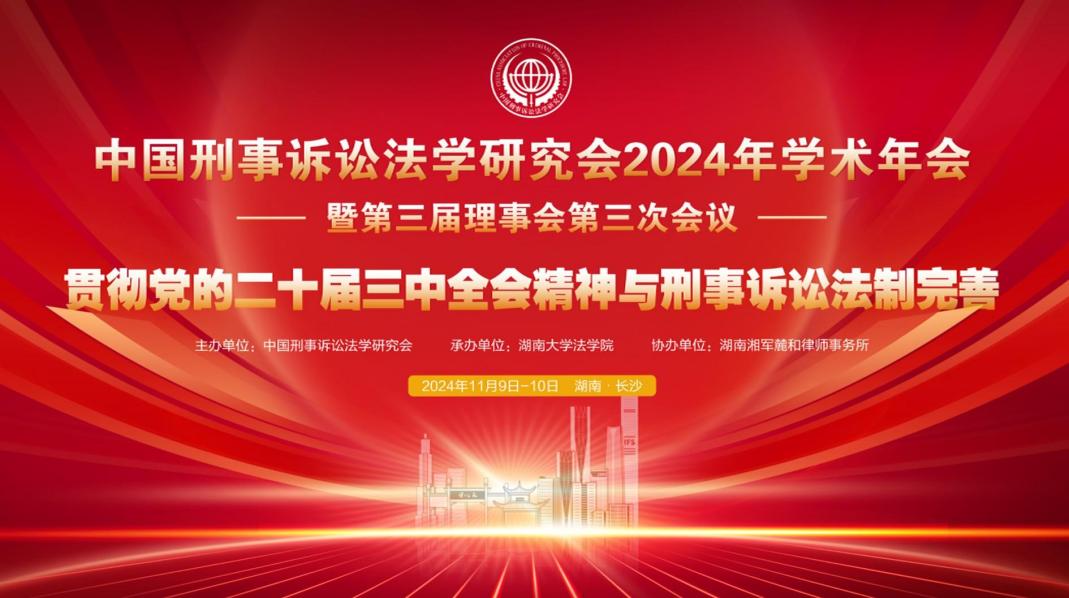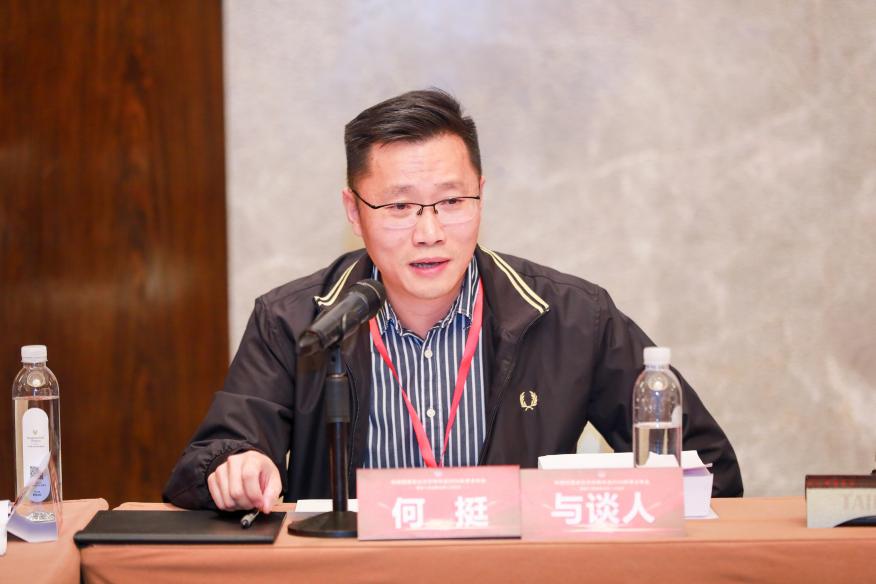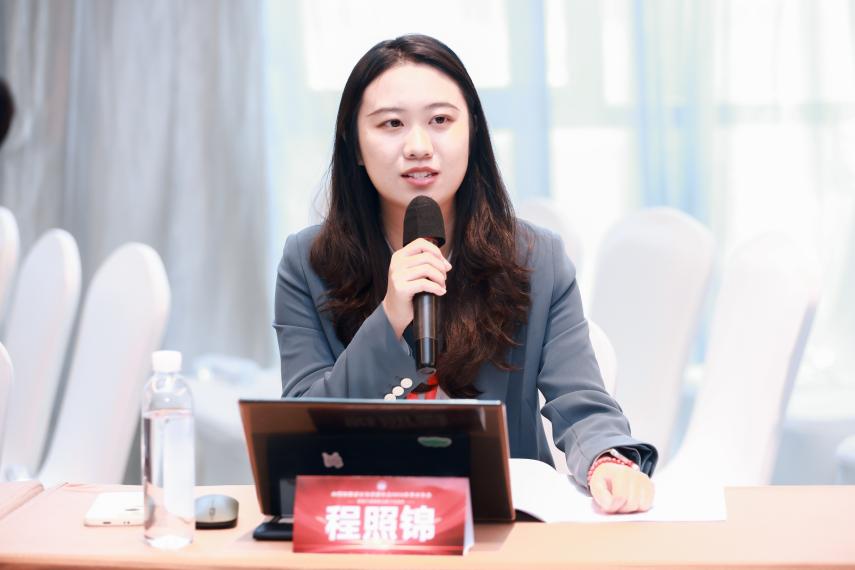
On November 9-10, 2024, the Annual Academic Conference and the Third Meeting of the Third Council of the China Criminal Procedure Law Research Association convened in Changsha, Hunan. The conference's overarching theme was "Implementing the Spirit of the Third Plenary Session of the 20th Central Committee of the Communist Party of China and Advancing the Criminal Procedure Legal System." The agenda was structured around several key topics, including "General Provisions and Fundamental Issues in Criminal Procedure Law," "Criminal Case Filing and Investigation Procedures and Systemic Challenges," "Public Prosecution Procedures and Systemic Issues," "Criminal Trial Procedures and Systemic Issues," "Criminal Execution Procedures and Systems, Special Procedures and Systems, and Additional Topics," with a total of fifteen sessions engaging in concurrent discussions. Professor He Ting, the Vice Dean of the Law School at Beijing Normal University, and doctoral candidate Cheng Zhaojin were among the attendees who contributed to the conference with their presentations. Additionally, postdoctoral researcher Yang Lin and doctoral candidate Liu Yingxi from Beijing Normal University, serving as part of the conference's organizing committee, actively participated in the proceedings of this annual conference.

Professor He Ting, Executive Director and Deputy Secretary General of the China Criminal Procedure Law Research Association, served as a speaker in the first unit of Sub-topic Three, "Public Prosecution Procedures and Systemic Issues". He pointed out that the discussion on discretionary non prosecution and conditional non-prosecution has a long history. Firstly, the scope of the lawsuit should be expanded, and there is a basic consensus among everyone. The key is how to expand it. Secondly, there is basically no controversy over the functions of "punishing crimes" and "mitigating minor offenses" carried by discretionary non prosecution and conditional non prosecution. However, there is some controversy over other functions. It is necessary to carefully consider whether discretionary non prosecution and conditional non prosecution can undertake a series of functions. Thirdly, there is a lack of empirical research on the scope of sentence extension, which can easily lead to confusion in the relationship between several non prosecution systems. It is necessary to consider the conditions and hierarchical structure of different non prosecution systems. Fourthly, the punishment of conditional non prosecution involves the issue of grasping the nature of the crime and punishment, lacking corresponding theoretical basis, and requires strengthened research. Fifth, the necessity of prosecution is the limit of various non prosecution systems, which requires consideration of human factors and various public interests in the process of handling cases. Sixth, practical factors such as assessment indicators may have an impact on the prosecution system, and discretionary non prosecution will inevitably be the focus of later evaluation, which may have an impact on the prosecutor's decision-making. Whether various functions can be achieved through assessment indicators requires the updating of the knowledge system as a guarantee.

Doctoral candidate Cheng Zhaojin submitted a proposal titled "Theoretical Review of Criminal Representative Litigation" for the "Improvement of Criminal Procedure Legal System" project sponsored by the China Criminal Procedure Law Research Association. Following an anonymous review by the association's evaluation panel, the proposal was designated as a fairly completed project. The findings were chosen for inclusion in the proceedings of the 2024 Annual Academic Conference of the China Criminal Procedure Law Research Association and Cheng Zhaojin was invited to present at the annual conference. She delivered her presentation in the second unit of Sub-topic Five, "Criminal Execution Procedures and Systems, Special Procedures and Systems, and Additional Topics," under the title "Criminal Special Procedures." Cheng Zhaojin highlighted that the practice of allowing victims to select representatives to participate in or observe court hearings arises from the practical demand of "economic crimes involving numerous parties." However, she noted, there is debate surrounding whether special groups like "fundraising participants" in crimes such as fundraising fraud should be classified as "victims" and if the representative litigation system is applicable to them. These groups, she explained, have an ambiguous status in criminal litigation, yet they meet the criteria of being involved parties. As their property rights are impacted by the court's judgment, and their civil claims influence the disposal of the involved assets, they can be termed "interested parties." In criminal proceedings involving stakeholders, it is permissible to elect representatives to engage in the process. While the representatives of interested parties and victims typically align in exercising procedural rights, there are distinctions in the scope of authorization and the content of their rights.

